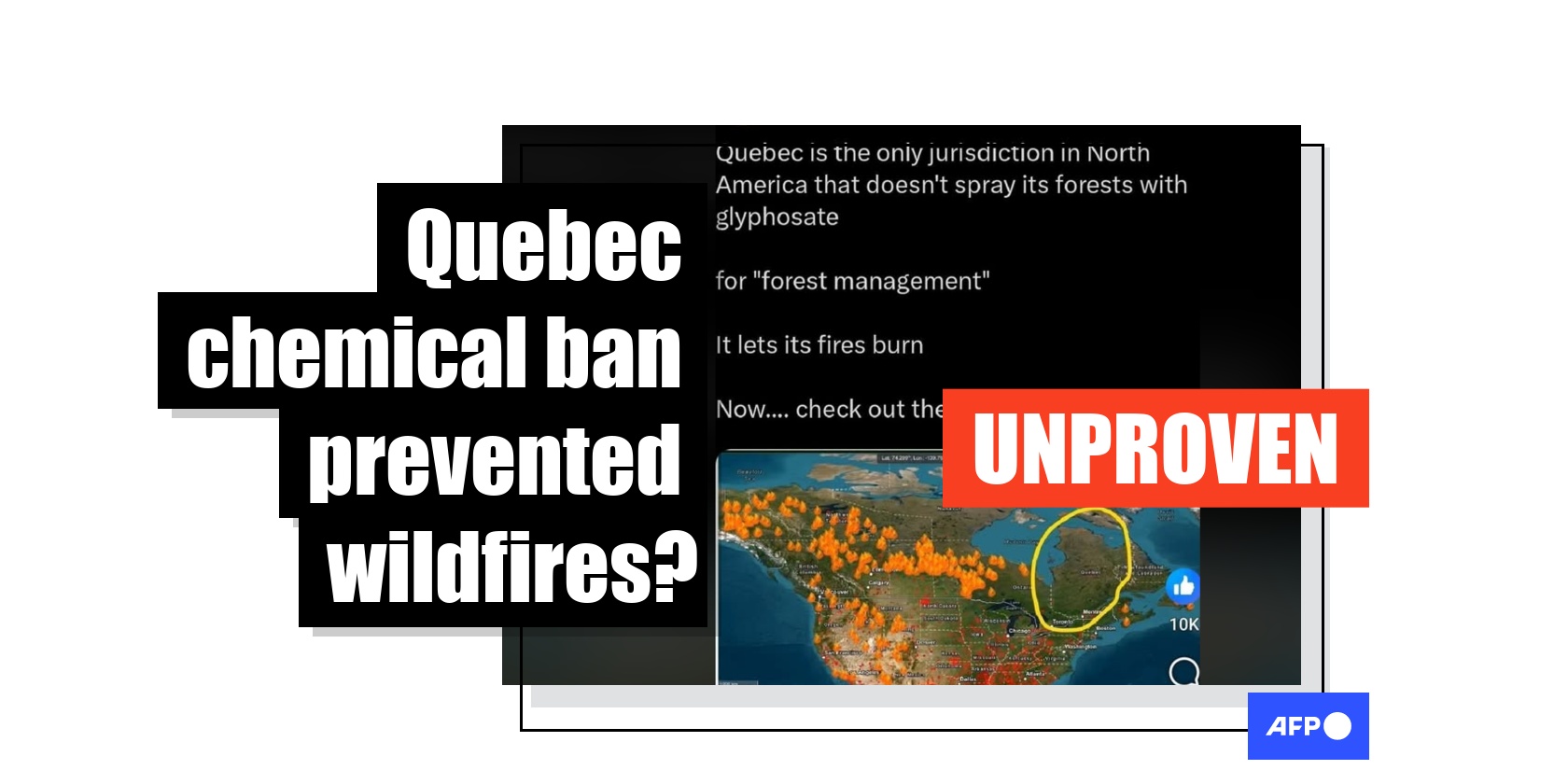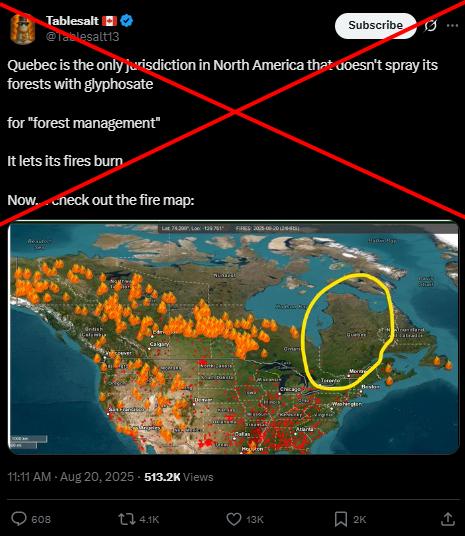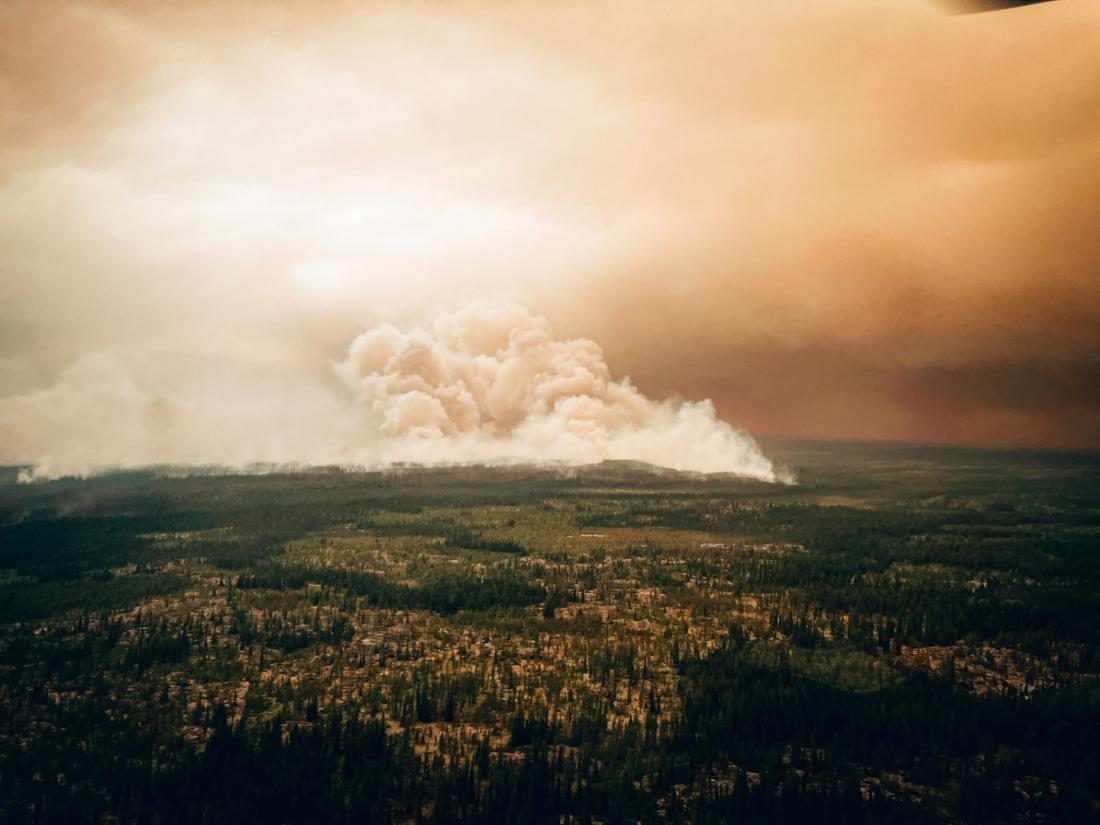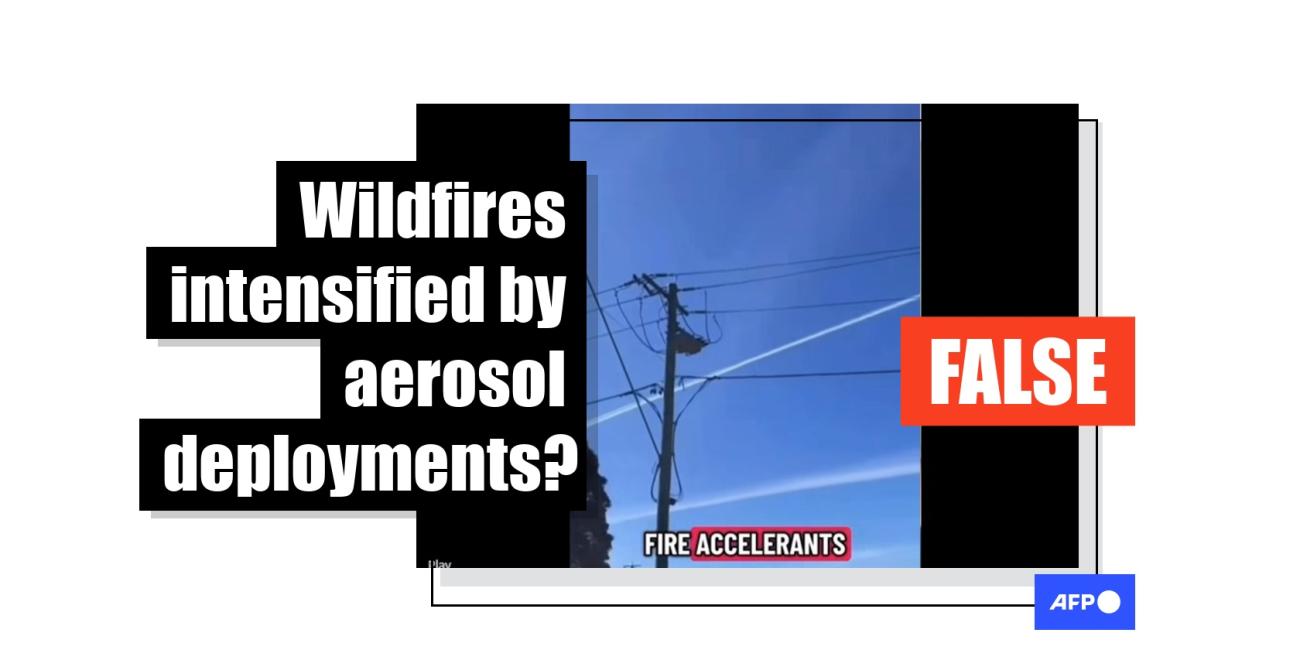
Glyphosate use in Canadian forests triggers misinformation
- Published on September 12, 2025 at 23:33
- 3 min read
- By Manon JACOB, AFP USA
"Quebec is the only jurisdiction in North America that doesn't spray its forests with glyphosate for 'forest management.' It lets its fires burn. Now.... check out the fire map," says an August 20, 2025 post on X, sharing satellite imagery from FIRMS US/Canada -- a resource jointly provided by NASA and the United States Department of Agriculture Forest Service to locate wildfire activity (archived here).
It contrasts the lack of blazes in Quebec with multiple active burns in other provinces.
The claim reverberated across platforms, including Instagram, Facebook, TikTok and Reddit, with posts implying that the use of weed killer was linked to the fires.

Glyphosate (archived here) is an herbicide widely used to control and eliminate invasive weeds and grasses on crop and non-crop lands.
Despite a low toxicity compared to other herbicides on the market, there are legitimate health concerns related to glyphosate (archived here, here and here).
The herbicide is sometimes sprayed on Canadian forests to help reclaimed lands recover, "or to reduce competing vegetation to aid the establishment and growth of new forests of a desired composition," according to the Canadian Institute of Forestry (archived here).
A ban on herbicide use in forests was invoked solely in the province of Quebec in 2001, but experts said it is a misstatement to claim continued use in other locations is a source of wildfires.
"The claim that 'glyphosate is the main cause of wildfires in Canada this season' is a clear oversimplification, if not a fallacy," said Nelson Thiffault, research scientist for the Canadian Forest Service (archived here).
Forest management practices, including the use of glyphosate-based herbicides, have been relatively stable for decades (archived here), he said, yet Quebec has "nonetheless experienced severe wildfire seasons in recent years."
Forest health
Ontario has seen a particularly dangerous fire season in 2025, leading to increased calls for a ban on the use of herbicides in its forests.
But experts told AFP there is no direct causality between the spraying of glyphosate and the 2025 fires. Rather, they said, overall forestry management practices impact the flammability of landscapes.
Yan Boulanger, a forest ecology scientist for the Canadian government, pointed particularly to "practices that promote the abundance of conifers" (archived here).
Similarly, Allie Tissot, a PhD candidate studying pesticides at Portland State University in Oregon, told AFP on September 5 that the favoring of monocultures, or one type of tree, to facilitate timber operations focused on commercial needs can make the forest less fire-resistant (archived here).
She said glyphosate use can also discourage the regrowth of more fire-resistant species.
Jodi Koberinski, a University of Waterloo doctoral fellow, agreed that glyphosate use is worsening the state of certain woodlands.
Koberiniski, who is also a spokeswoman for TEK Elders, a non-profit communicating on traditional ecological knowledge in Canada (archived here), said a simple snapshot such as the map shared on social media does not draw accurate forest fire patterns.
"That's just bad science," she told AFP on September 4.
While Quebec experienced a calmer wildfire season than usual, in 2023 it saw a record number of acres burned with the same regulations concerning glyphosate.

Canada has increasingly been hit with extreme weather events, with scientists observing that northern regions are warming at a faster pace (archived here) than other parts of the globe.
2023 remains the worst fire year on record for Canada (archived here), when nearly 18 million hectares (44.5 million acres) -- and 4.3 million hectares (10.6 million acres) burned in Quebec alone.
"This shows the major role of climate, weather extremes, and broader ecological conditions as other key drivers of fire activity," Canadian Forest Service's Thiffault said.
AFP has debunked other false and misleading claims on wildfires.
Copyright © AFP 2017-2026. Any commercial use of this content requires a subscription. Click here to find out more.
Is there content that you would like AFP to fact-check? Get in touch.
Contact us




